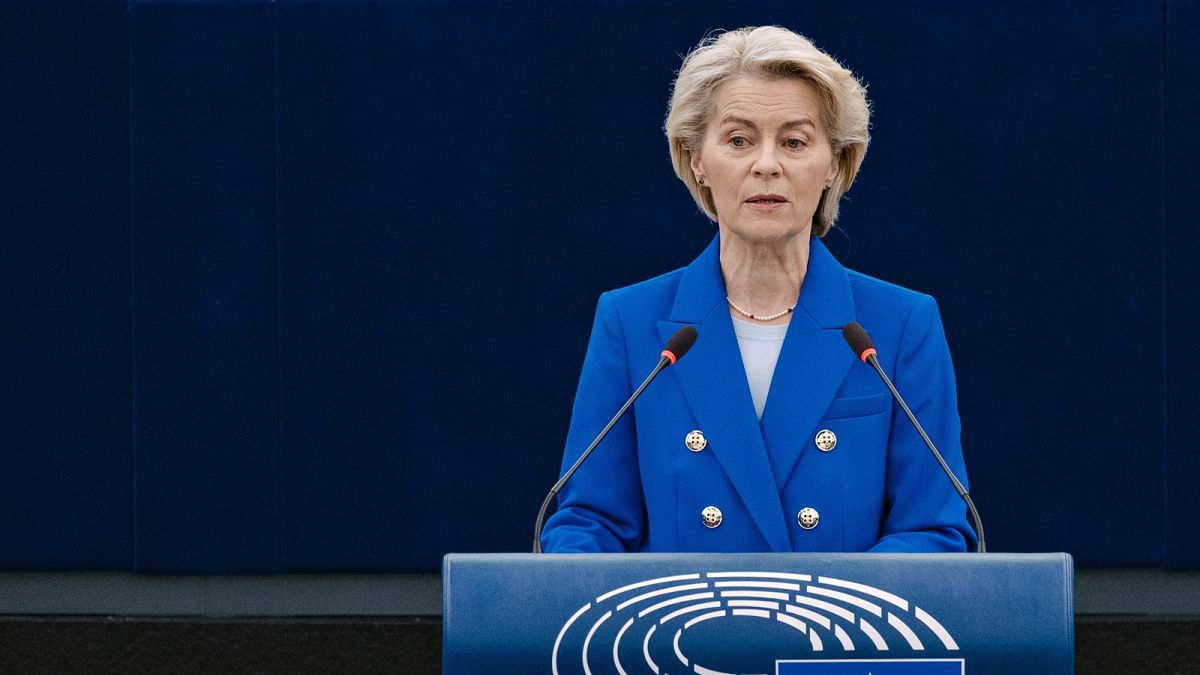Russia is waging a “deliberate and targeted grey zone campaign” against Europe that requires a profound rethink of defence policy, Ursula von der Leyen has warned as she urged governments to leave their “comfort zone” and close ranks against Moscow.
“Something new and dangerous is happening in our skies,” the European Commission president said on Wednesday morning, addressing lawmakers in Strasbourg.
Von der Leyen cited the recent string of incursions into European airspace, including in Poland, Romania, Estonia, Denmark and, most recently, Belgium and Germany.
Some of these incidents have been attributed to Russia, while others remain unexplained. But they have all triggered a sense of alarm and an uncomfortable reckoning about Europe’s lack of preparedness to intervene against drones.
Von der Leyen also referred to the sabotage of critical infrastructure, cyberattacks, electoral interference and disinformation as elements of a broader aggression.
“These incidents are calculated to linger in the twilight of deniability. This is not random harassment. It is a coherent and escalating campaign to unsettle our citizens, test our resolve, divide our Union, and weaken our support for Ukraine,” she said.
“And it is time to call it by its name. This is hybrid warfare.”
“Europe must respond,” von der Leyen stated. “We must investigate every incident. And we must not shy away from attributing responsibility. Because every square centimetre of our territory must be protected.”
Acknowledging the EU had been founded to preserve and uphold world peace, von der Leyen argued Russia’s full-scale invasion of Ukraine and its subsequent actions on the continent had fundamentally altered how the mission is pursued.
Now, she said, living in peace means strengthening the collective ability to “deter aggression and provocation” and adapt to “the changing nature of warfare”.
“If we hesitate to act, the grey zone will only expand,” she warned.
The Commission chief then listed the new initiatives that her executive has put forward to boost defence capabilities, such as the ambitious project to build a “drone wall” along the bloc’s eastern flank to detect and shoot down incoming drones.
‘Shield for our entire union’
Since her presentation last month, the “drone wall” has attracted enormous political and media interest, becoming the central subject of discussion during last week’s informal summit of EU leaders in Copenhagen.
The summit, though, revealed fractures behind the project. German Chancellor Friedrich Merz and French President Emmanuel Macron raised questions about its practical feasibility. Spanish Prime Minister Pedro Sánchez and his Italian counterpart Giorgia Meloni insisted it should protect all EU borders, not just the eastern ones.
The complaints have fuelled speculation in Brussels that the “drone wall” might eventually be renamed or reframed. On Wednesday, von der Leyen directly addressed the criticism, noting the undertaking would not be “only” about the eastern border.
“We need a 360-degree approach. This anti-drone system will be a shield for our entire union, including our southern flank,” she explained.
“It should be designed to address a wide spectrum of challenges: from responding to natural disasters to tackling international organised crime, from monitoring weaponised migration to controlling the Russian shadow fleet.”
Von der Leyen took a moment to stress the need to guarantee that the ongoing surge in defence spending benefits Europe’s domestic industry, rather than flowing into foreign companies, and produces a “return on investment”.
The preference for “Made In Europe”, passionately advocated by France, has made gradual inroads across the bloc, even if some member states prefer to focus on the immediate delivery of supplies, regardless of the geographical origin.
Von der Leyen closed her ominous-sounding speech with one final warning.
“The choice before us is simple,” she told lawmakers. “We can either shy away and watch Russian threats escalate, or we meet them with unity, deterrence and resolve. I know which side we will choose.”

